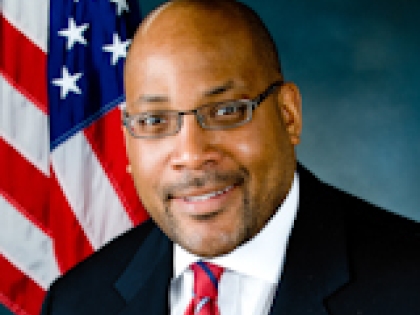
Making America's Healthcare System Well Again
John L. Sampson
March 24, 2010
-
ISSUE:
- Health
By State Senator John L. Sampson, Majority Conference Leader
After more than seven long months of hard, sometimes hostile, political and public debate an historic reform of the United States healthcare system is now a done deal. President Barack Obama has gotten back his political mojo and helped deliver what is bound to be the most important legacy of his presidency. Many former United States presidents tried and failed to pin a bell on this huge, bloated beast that is our national healthcare system. Simply proposing minor changes engender such deep and raw emotions on both sides of the divide – those in favor of deep reform with the aim of finally reaching a system of universal healthcare, and those who think that the American healthcare system is the best in the world and should not be tinkered with at all .
The reality is somewhere in the middle and the fact that this bill that President Barack Obama signed into law ended up being so partisan and divisive is testimony to the fact, not only of its importance, but also of the deep fears and apprehensions that it evokes. There is another dimension to this still heated debate. For years Americans have been told by politicians and talk show hosts alike that we have the best healthcare system in the world and many genuinely believe it. So the problem for reformers like President Barack Obama is how to persuade Americans that this was and is not really the case and that parts of the system are badly broken and need fixing?.
How can a progressive liberal president package and sell his healthcare reform proposal when years of mental conditioning have resulted in any and all approaches to fixing this system is viewed as committing medical sacrilege that immediately create public panic and confusion, stoking fears that the resulting system would be more expensive and not in the best interests of the American people?
And for all the Republican Party’s talking points about the Obama healthcare plan tagging it as “socialism,” “a government take-over” and “death panels” the truth of the matter is that it is neither radical nor reckless. Still, this historic healthcare reform will be a huge improvement over the present wasteful system. And it would cover an estimated 32 million people that jam up our emergency rooms for medical care because they do not have health insurance. This place our hospitals in an acutely difficult position of having to provide unreimbursed and uncompensated health care.
As a lawmaker I know that this is what caused many of our hospitals in New York State to be now on the financially failing list. In order to stay opened they have had to cut services that in turn helped to devalue the quality of healthcare delivered to many communities. Moreover, the Obama Plan will end the practice of excluding those with pre-existing conditions; and offer subsidies to families and small businesses toward their purchase of health insurance policies. This is thoughtful, progressive healthcare reform by any standard.
But as President Obama himself explained this is a great first step but not a permanent fix by any means. The U.S. healthcare system wastes about a trillion dollars a year, is riddled with waste and duplication of services, and subject to abuse by people intent on gaming the system. It was and is necessary to reform it albeit in an incremental fashion.
Any deep-going reform of the system must first change the way that medical care is delivered. Next, it must focus on prevention, and reward doctors and hospitals for keeping and making their patients healthier by more innovative methods. Given the loud howling and Republican demagoguery that erupted over this healthcare legislation that in reality accomplishes far less, one can imagine the explosive firestorm that would ignite if President Obama dared to propose a system that clamped down on unnecessary medical tests and procedures.
In the future, more reform efforts will have to tackle the issue of the prohibitive cost of American healthcare. While there is still an ongoing debate over if our healthcare system is the best in the world all are in agreement that it is the most expensive and is having a negative drag on the U.S. economy. I am optimistic that we can deal with this problem even though there are many special interests groups that would oppose any change to the system. President Obama demonstrated that he was up to the task of swimming against the political tide and working around Republican obstructionism to get this important and historic legislation passed.
The plan as presently exists will reduce the U.S. budget deficit by managing healthcare costs and fine-tuning the system to prevent waste and unnecessary tests that is a feature of so-called “defensive medicine.” Trouble is we’ve allowed this situation to fester for way too long and cleaning it up now will require a lot of effort, time and creative thinking. But we must clean out the U.S. healthcare’s Augean Stables no matter how difficult. After spending billions of dollars on healthcare Americans still do not have universal healthcare coverage and we are the only major industrialized country in the western hemisphere that does not provide this service to its citizens.
After months of open and often times hostile debate, Democrats in Congress boldly stood up for the rights of Americans and their health care. Hundreds of thousands of New Yorkers don’t have health insurance or access to quality health care, and too many have gone broke just because they became ill. The bill that was passed gives our people a system that works. I congratulate the members of New York’s Congressional Delegation who voted to give New Yorkers a chance to get the health coverage they deserve. [Senator John L. Sampson represents Brooklyn’s 19th Senate District that includes Flatlands, Canarsie, parts of Brownsville and East New York.]

